A recent AAA survey of electric vehicle owners found that nearly all (96%) would buy or lease another the next time they were in the market for a new car. And word has spread: Sales of EVs through the first five months of 2021 grew 150% compared to the same period last year. Even President Joe Biden voiced his support of the green technology by setting a national goal for EVs to make up half of all new vehicle sales by 2030.
Certainly, there could be no better seals of approval. Yet while buying electric cars has grown exponentially over the years, it still lags far behind that of traditional gas-powered cars. As of 2020, there were nearly 1.8 million EVs registered in the U.S., according to the Pew Research Center, three times as many as in 2016. That may seem like an impressive growth until you compare it to the 280 million cars in operation across the country. Indeed, EVs represented just 2% of the new cars purchased in the U.S. in 2020.
“Although 40 million Americans have shown interest in buying electric for their next car, actual adoption is happening at a much slower rate,” said Greg Brannon, AAA’s director of automotive engineering and industry relations.
The gap between interest in buying electric car and owning an electric car begs the question: What are the hurdles preventing the widespread adoption of EVs, and, more importantly, are they capable of being cleared?
Upfront Cost
There’s no getting around it: buying electric cars costs more, at least initially, than gas-powered cars.
The high cost is largely a byproduct of the expensive process of manufacturing EV batteries. Fortunately, battery prices are dropping precipitously. Bloomberg found the average cost to be around $130/kWh as of late 2020, whereas they cost more than $1,000 just 10 years ago. The news outlet predicts batteries will drop to an average of $100/kWh by 2023. This number would represent an important milestone because at $100/kWh per battery, Bloomberg estimates that EVs can be manufactured and sold to a mass market at the same price as gas-powered cars.
The better news for potential EV owners is that the cost of the vehicles is already coming down. The average transaction price for all new vehicles in June 2021 was $42,282, according to Kelley Blue Book. The average transaction price for all electric vehicles was $49,766.
If consumers are able to overcome the initial higher costs, they should be able to make up that difference, if not surpass it, as EV ownership generally costs less than gas-powered cars. The money starts to come back in the form of tax credits. A federal tax credit of up to $7,500 per EV may be available depending on the model of EV as well as the owner’s tax liability. State governments also offer varying tax credits and other incentives that can further reduce the cost.
EV drivers will see additional savings over the lifetime of their ownership, as these vehicles cost less to both maintain and operate. (EVs don’t require oil changes or air-filter replacements, for example.) AAA research found, if maintained according to the automakers’ recommendations, annual EV maintenance costs $330 less than that of gas-powered cars. Then comes the all important factor of “fuel.” While electricity does cost money, it pales in comparison to the price of gasoline. As such, the power required to drive 15,000 miles per year in an EV costs an average of $546, according to AAA, less than half the price of the amount of gas required to travel the same distance.
All told, AAA found the total cost of an EV over five years and 75,000 miles of driving to be less than $600 more than owning a comparable gas-powered car.
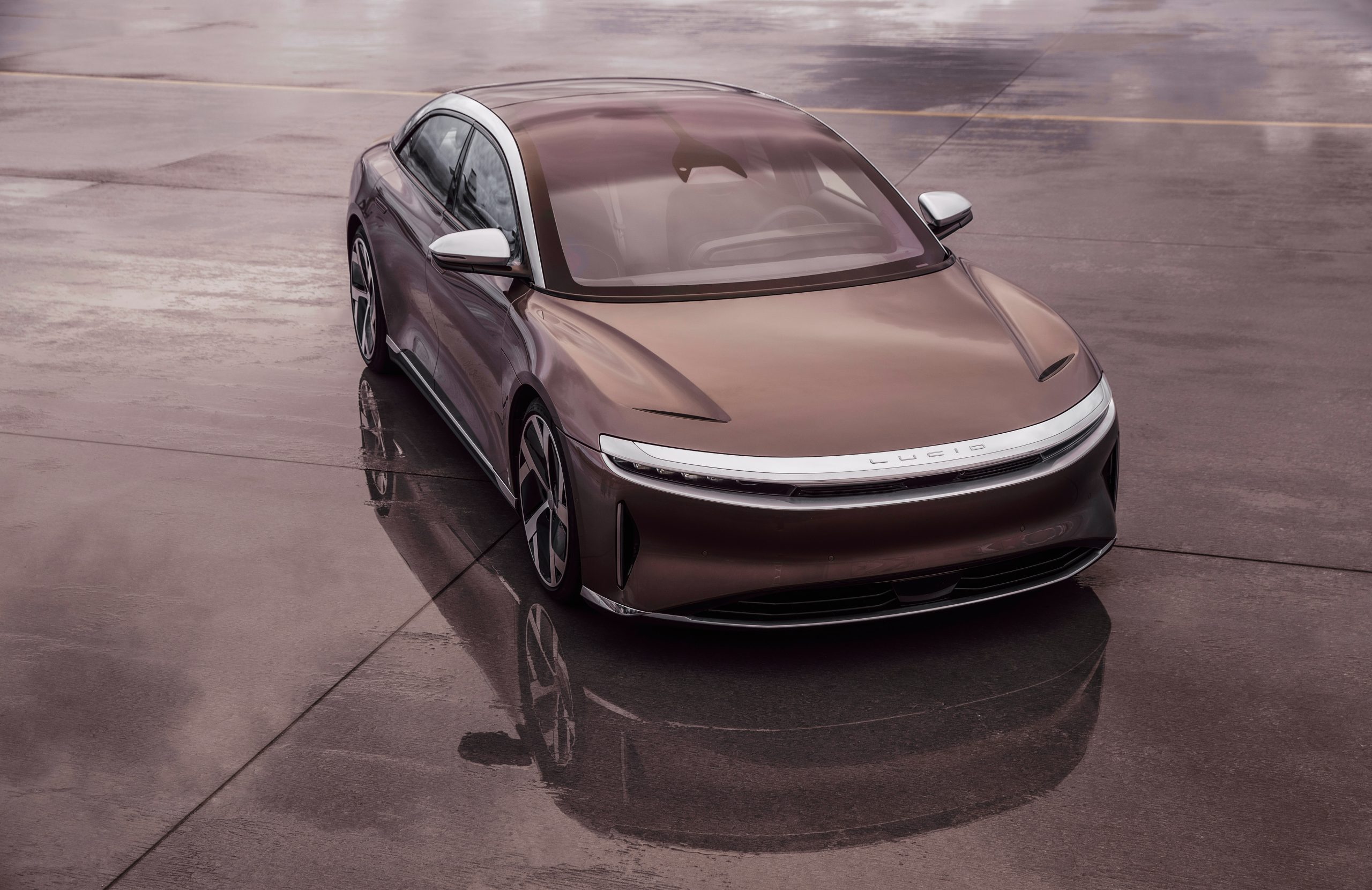
Range Anxiety
A recent automotive survey conducted by Deloitte listed driving range to be the biggest concern amongst U.S. consumers regarding all-battery-powered electric vehicles.
This is one problem that, although valid, shouldn’t pose the level of concern that it does. While limited driving range used to be a major issue — not too long ago, it was difficult to find an EV that could travel more than 100 miles on a single charge — it’s becoming less so with each passing year. Today, there are numerous models that can travel 200 miles. Tesla cars, including the best-selling Model 3, feature batteries capable of more than 300 miles. The soon-to-be-released Lucid Air boasts a range of 500 miles.
Range anxiety is likely an effect of drivers simply overestimating how much power they really need. The previous year’s Deloitte survey found the majority of consumers expected EVs to travel more than 200 miles per full charge even though they traveled an average of 27 miles per day. “Range anxiety is generally only a concern to people who don’t drive electric,” said Anja van Niersen, CEO of European EV charging network Allego.
Be that as it may, driving range is still an issue for those who don’t have access to readily available EV chargers, which points to a much more significant barrier to widespread electric car adoption.
Lack of Infrastructure
The lack of public charging stations may just be the most significant hurdle to the widespread adoption of EVs in the U.S. The problem is most notable in two areas. First is with potential EV owners who don’t live in a single-family home, where most EV drivers charge their vehicles. Those who live in apartments don’t have this luxury and therefore have to charge their vehicle elsewhere. This can become a rather burdensome chore after time. Furthermore, apartment property owners are often hesitant at installing such infrastructure as it may be cost prohibitive.
Allowing the use of common outlets also poses problems. Because EV charging consumes more energy than most other residential uses, property managers would likely want residents to pay the electrical costs. This would require devising a way to monitor how much power is being used by each resident.
Regardless of living situations, public infrastructure is needed for all EV owners looking to make long-distance trips. There are more than 43,000 public EV charging stations in the United States, according to the Department of Energy. (If that seems like a large number, consider that there are nearly three times the number of gas stations.) But a 2019 study by the International Council on Clean Transportation found that this is just a fraction of the infrastructure needed. It estimated that 10,000 more charging stations will be required by 2025 to support EVs traveling between cities.
While EV infrastructure has a long way to go, local and federal governments appear committed to the trek. In 2019, two-thirds of U.S. mayors voiced their support of improving infrastructure even at the cost of additional parking space. More recently, a proposed trillion-dollar federal infrastructure bill is allocating $7.5 billion to fund the installation of 500,000 public charging stations across the country. If enacted into law, the legislation would be the federal government’s first-ever investment in EV chargers and, maybe, a sign of things to come.
Interested in purchasing an electric – or gas-powered – vehicle? Let AAA help get you in the perfect car for the right price with a low-interest auto loan.
Visit AAA’s Electric Vehicle platform for more information on these cars of the future.
165 Thoughts on “Why Aren’t More People Buying Electric Cars?”
Leave A Comment
Comments are subject to moderation and may or may not be published at the editor’s discretion. Only comments that are relevant to the article and add value to the Your AAA community will be considered. Comments may be edited for clarity and length.



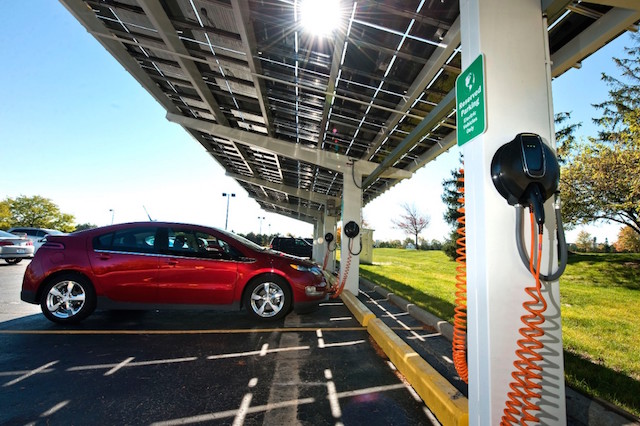


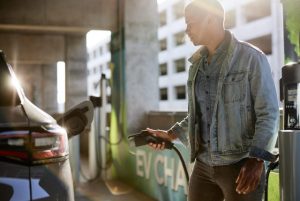
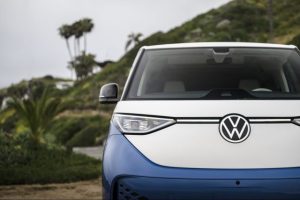
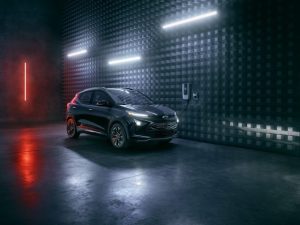








I’d be concerned how much more the battery would be drained by hills or mountain driving where I live. Also we get lower milage in the snow with our gas powered vehicles–does anyone know how snow affects the milage with an electric vehicle?
I have a Chevy Volt and the beauty of the car is I get 50mi/charge and a backup gas generator for when I run out of electricity. 50miles of juice gets me to work and a charger at work gets me the juice I need to get home. For longer trips like to the lake on the weekend or to visit relatives, the gas generator kicks on and gets used when I need it. My gas gauge stays unchanged all week long. This works for me, and I want Chevy to make more vehicles with this technology. I’m getting ~ 250miles of driving / gallon of gas. I would not buy a full on EV right now, but maybe in the future. I feel that economics more than politics will drive this debate and the future outcome.
At this time there are many obstacles to purchasing an EV: price, limited manufacturers, service & parts availability, body/vehicle type — it goes on & on, not to mention limited recharging stations and time to recharge if you are traveling further than a full charge can cover (round trip). However, your article cites one laughable reason to consider buying an EV — something that any thinking person would consider a detriment — that being an endorsement by President Biden.
Agreed 100%! Buyers remorse anyone?
Necessary infrastructure just doesn’t exist: I live in a residential part of a city. I don’t have a driveway, and I don’t own the parking space in front of my house, so even if I put in some charging mechanism, I couldn’t be sure I could use it. Charging stations for city residents (that don’t live in apartments with garages) is just impractical at this point.
Charging time is a big concern. You’d have to plan more carefully to make sure your car was fully charged at all times. Finding out that you don’t have a sufficient charge when you get in your car would be really annoying.
Range anxiety is also a big concern. Running out of juice – or needing a multi-hour charge – during a trip would be a huge issue.
Longer term, some of the issues others have raised – e.g., battery disposal – would be a deterrent, but presumably (if important enough) it is a soluble problem.
What about highway accidents or other reasons for traffic closure. Recently was in highway backup for over 2 hours. Does stop and go for 2 hours still use energy from battery at the same rate?
We have a plug-in hybrid (Honda Clarity) that we love. Mainly we use electric (I have a short commute), but enjoy the security of having a back-up gas engine for those rare long trips. We also have solar panels, so our “fuel” expense is quite low.
Not hydro from Canada?
Canada’s well ahead of us on this account. And hydro power is very available and cheap there. They send a lot of electrical power our way — HydroQuebec to the U.S. northeast, in particular.
It’s about the price and the odd design. The industry, deeply in bed with the petroleum industry, has sabotaged electric and hybrid vehicles in both ways. They don’t have to cost that much more. And, to be sure, we’ve gotten used to the looks.
Not mentioned in the “Range Anxiety” discussion is the effect of heating the passenger cabin for electric cars. In the Northeast, using electric power to provide heat for the occupants is a significant power drain that can easily cut the range in half, depending on outdoor temperature. In a gas-powered car, cabin heating comes from the waste heat of the engine, so there’s effectively no loss of range as a result.
Thank you. Had no idea this is so. Thought heat was taken physically right off the battery.
The elephant in the room concerning widespread EV use is the electrical infrastructure. The added burden from charging electric vehicles combined with a move to stop the use of fossil fuels for home heating cannot be supplied without upgrading the whole system from the power source to the outlet. Not to mention, the need for more power plants, as solar and wind sources cannot provide the electricity needed. The existing system can’t even keep up today during high demand. Maybe someday but push will come to shove for power demands with the fairyland desire to go all electric.
I am glad to see there are many who like me question the rush to push everyone into an electric vehicle box. I am most concerned about the chance of fire even though I park outside. The other question I have is repair bills and how they match up with the bills I get now. After having driven down to Cape Cod a couple of times this summer, I would wonder about keeping a charge in a traffic jam. And why would I want to not use the a/c when the temperature is hot outside.
Remember a car running on electric is not using/wasting electricity while stopped in traffic, only what you choose to use for ac or heat. A gas car would waste energy idling while stopped getting zero miles per gallon.
Repairs for an EV should be less than an ICE. No oil changes for one, few parts for another. Although the AC will, of course, use power from the battery, you are unliekly to run out of juice in a traffic jam since the car does not use power when it is not moving
What will happen when they all run out o juice at the same time on a busy highway in a snowstorm?
We bought a Tesla Model 3 in late 2019, although we weren’t initially expecting to. We were looking for a second car to use for everything except long trips (with three teen/young adult kids, the three-row ICE minivan remains our family travel vehicle).
We started by trying to shop for plug-in hybrids and EVs that still had more available tax credit. If anyone but Tesla wants to sell more electric vehicles, they need to fix the shopping experience.
We live in NJ. To find EVs to look at from conventional dealerships, we had to go to individual dealer websites to hunt for vehicles in stock. Many dealerships required contact information in order to check inventory — months later I was still getting calls and emails from some of them. No dealership near us had more than one hybrid or EV in stock, even in brands that offer multiple options (e.g. Hyundai). To look at multiple options would require multiple trips in different directions from our home.
So we picked one dealership and went to look at the one hybred in stock. We waited in the showroom until the one sales person who knows anything about electric cars was free (a garrulous enthusiast…like car shopping with my late father). Then we waited while they fetched the one hybrid from some far corner of their lot, and did our test drive. We left to consider if we wanted to trek to another dealership 30 minutes away to see another midsized hybrid/EV. Also the car we test drove had an interior and driving experience that left us disappointed and feeling like we would be “settling” on every other dimension in order to be environmentally friendly.
Since Tesla was nearby, we went in on a whim, although they weren’t on our target list (since they had far less rebate available). Everything was available to see. Knowledgeable staff. Easy shopping. A car that my spouse fell in love with, at a comparable price. It was like shopping in an Apple store after rummaging in the remainder bins of ICE-focused dealerships. So we soon made our decision and took delivery a few weeks later. Got a level2 charge outlet for home (saving $500 by installing a high capacity outlet, essentially a 50 amp dryer outlet, rather than a Tesla branded station).
If other brands want to sell electric cars, they must figure out how to make the experience less painful.
I would love to own an EV but it’s impossible as I live in a condo where there is NO plan to install charging stations for the vehicles we park here. We have NO garages and no way to charge these vehicles. Until there is some way for condo Boards to get funding to install charging stations, this will not happen to condos like ours for many, many years. I do hope the Fed. Infrastructure Bill will address this situation.
What does installation cost?
As noted above, the cost per charge/watt/mile is not discussed. Do you shop around for better rates? What is the cost to drive 200 miles, for instance? What are the repair/maintenance costs? What are the costs to install chargers in your house? What are the effects of temperature on battery performance? Gas powered vehicles pay taxes on fuel that are supposed to be devoted to road maintenance (even though we know it goes into the general fund). How do electric vehicles pay their “fair share” to maintain roads etc.? Efforts to pass a “per mile” tax will only be added onto the gas engine owner, not replace the onerous taxes on fuel. Perhaps, like Diesel fuel, they will have special rates for EVs when filling. Lastly, get rid of the tax deductions unless you offer similar deductions to those that want/need an internal combustion driven vehilce.
The reasons we won’t buy an electric car are listed, but for us, the priority is different – #1 range anxiety, #2 lack of charging stations, #3 price, #4 charging time . We drive R/T from Florida to Massachusetts, ~1400+ miles, several times a year and it’s grueling on our 60+ bodies. We do it in 2 1/2 days now. The moderately priced hotels we stay at do not have charging stations. The range of these vehicles is concerning. We have often been stuck in I-95 traffic for hours at time in the Virginia-DC-Maryland-Delaware and New York areas in hot weather with our AC on, how long would our battery last then. Even if we charged moments before hitting a traffic jam (which no one expects), we’d be panicking. We have sweated even running out of gas at times, let alone having batteries to worry about. We refuel now before we hit 1/4 tank due to the unexpected and once we came very close to empty sitting in a very long traffic jam, how many stops & time would we need with an EV to maintain this 1/4 charge? No way would we feel safe in an EV today. We might go with a Hybrid someday.
Also, our condo in Massachusetts does not have plug-in stations, so short of running a 100’+ extension cord out our 3rd floor window…..
Today, EVs seem fine for mostly short distance travel only, AND assuming you have both charging capability at home and at ALL your destinations. We’re a long way from that as a country.
Electric vehicles at this point in time r a waste of money and do nothing for the environment. Gas engines today r super efficient and give off so little co…electric vehicles have a bigger carbon footprint
This is my second Toyota Prius Plug-in and i reccomend it highly. The ability to use the gas engine to extend trips is invaluable and the EV part makes going around town easy. I go to the gas station about once every two weeks and put less than 7 gallons to fill i.
A major problem I have is being able to flee disasters. A few years ago hurricanes swept through Florida. Now if you were in Miami most EV’s would not have the range to get to the Georgia border before running out of juice. Now if you ran the a/c (needed in Florida) the range would even be shorter. Now you have to wait 12 hours to recharge, if you can get to a charger. After the storm there was no power in most of the state, so how could you get back? What good is an EV? You could get gas – difficult but available. The powers that be have to answer this evacuation problem as this has happened more than once – Texas, Louisiana, super storm sandy, etc.